The ELO is proud to announce the “The N. Katherine Hayles Award for Criticism of Electronic Literature” and “The Robert Coover Award for a Work of Electronic Literature.” Below is information including guidelines for submissions for each.
“The N. Katherine Hayles Award for Criticism of Electronic Literature”
“The N. Katherine Hayles Award for Criticism of Electronic Literature” is an award given for the best work of criticism, of any length, on the topic of electronic literature. Bestowed by the Electronic Literature Organization and funded through a generous donation from N. Katherine Hayles and others, this $1000 annual prize aims to recognize excellence in the field. The prize comes with a plaque showing the name of the winner and an acknowledgement of the achievement, and a one-year membership in the Electronic Literature Organization at the Associate Level.
We invite critical works of any length. Submissions must follow these guidelines:
1. This is an open submission. Self nominations and nominations are both welcome. Membership in the Electronic Literature Organization is not required.
2. There is no cost involved in nominations. This is a free and open award aimed at rewarding excellence.
3. ELO Board Members serving their term of office on the Board are ineligible for nomination for the award. Members of the Jury are also not allowed to be nominated for the award.
4. Three finalists for the award will be selected by a jury of specialists in electronic literature; N. Katherine Hayles will choose the winner from among the finalists.
5. Because of the nature of online publishing, it is not possible to conduct a blind review of the submissions; the jury will be responsible for fair assessment of the work.
6. Those nominated may only have one work considered for the prize. In the event that several works are identified for a nominee, the nominee will choose the work that he or she wishes to be juried.
7. All works must have already been published or made available to the public within 18 months, no earlier than December 2012.
8. All print articles must be submitted in .pdf format. Books can be sent either in .pdf format or in print format. Online articles should be submitted as a link to an online site.
9. Nominations by self or others must include a 250-word explanation of the work’s impact in the field. The winner selected for the prize must also include a professional bio and a headshot or avatar.
10. All digital materials should be emailed to elo.hayles.award@gmail.com by May 15, 2014; three copies of the book should be mailed to Dr. Dene Grigar, Creative Media & Digital Culture, Washington State University Vancouver, 14204 NE Salmon Creek Ave., Vancouver, WA 98686 by May 15, 2014. Those making the nomination or the nominees themselves are responsible for mailing materials for jurying. Print materials will be returned via a self-addressed mailer.
11. Nominees and the winner retain all rights to their works. If copyright allows, ELO will be given permission to share the work or portions of it on the award webpage. Journals and presses that have published the winning work will be acknowledged on the award webpage.
12. The winner is not expected to attend the ELO conference banquet. The award will be mailed to the winner.
Timeline
Call for Nominations: April 15-May 10
Jury Deliberations: May 15-June 10
Award Announcement: ELO Conference Banquet
For more information, contact Dr. Dene Grigar, President, Electronic Literature Organization.
“The Robert Coover Award for a Work of Electronic Literature”
“The Robert Coover Award for a Work of Electronic Literature” is an award given for the best work of electronic literature of any length or genre. Bestowed by the Electronic Literature Organization and funded through a generous donation from supporters and members of the ELO, this $1000 annual prize aims to recognize creative excellence. The prize comes with a plaque showing the name of the winner and an acknowledgement of the achievement, and a one-year membership in the Electronic Literature Organization at the Associate Level.
We invite creative works of any length and genre. Submissions must follow these guidelines:
1. This is an open submission. Self nominations and nominations are both welcome. Membership in the Electronic Literature Organization is not required.
2. There is no cost involved in nominations. This is a free and open award aimed at rewarding excellence.
3. ELO Board Members serving their term of office on the Board are ineligible for nomination for the award. Members of the Jury are also not allowed to be nominated for the award.
4. Three finalists for the award will be selected by a jury of specialists in electronic literature; Robert Coover or a representative of his will choose the winner from among the finalists.
5. Because of the nature of online publishing, it is not possible to conduct a blind review of the submissions; the jury will be responsible for fair assessment of the work.
6. Those nominated may only have one work considered for the prize. In the event that several works are identified for a nominee, the nominee will choose the work that he or she wishes to be juried.
7. All works must have already been published or made available to the public within 18 months, no earlier than December 2012.
8. Works should be submitted either as a link to an online site or in the case of non-web work, available via Dropbox or sent as a CD/DVD or flash drive.
9. Nominations by self or others must include a 250-word explanation of the work’s impact in the field. The winner selected for the prize must also include a professional bio and a headshot or avatar.
10. Links to the digital materials or to Dropbox should be emailed to elo.coover.award@gmail.com by May 15, 2014; three copies of the CD/DVDs and flash drives should be mailed to Dr. Dene Grigar, Creative Media & Digital Culture, Washington State University Vancouver, 14204 NE Salmon Creek Ave., Vancouver, WA 98686 by May 15, 2014. Those making the nomination or the nominees themselves are responsible for mailing materials for jurying. Physical materials will be returned via a self-addressed mailer.
11. Nominees and the winner retain all rights to their works. If copyright allows, ELO will be given permission to share the work or portions of it on the award webpage. Journals and presses that have published the winning work will be acknowledged on the award webpage.
12. The winner is not expected to attend the ELO conference banquet. The award will be mailed to the winner.
Timeline
Call for Nominations: April 19-May 10
Jury Deliberations: May 15-June 10
Award Announcement: ELO Conference Banquet
For more information, contact Dr. Dene Grigar, President, Electronic Literature Organization.
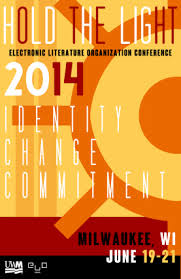 This week we preempt our Summer eReading series to bring you a host of works featured in the 2014 ELO Conference: Hold the Light June 18-21 in Milwaukee, Wisconsin. Â And conference organizers Stuart Moulthrop, Marjorie Luesebrink, Sandy Baldwin, and Kathi Inman Berens have brewed up a lake of Milwaukee’s finest. Â You can download the full program.
This week we preempt our Summer eReading series to bring you a host of works featured in the 2014 ELO Conference: Hold the Light June 18-21 in Milwaukee, Wisconsin. Â And conference organizers Stuart Moulthrop, Marjorie Luesebrink, Sandy Baldwin, and Kathi Inman Berens have brewed up a lake of Milwaukee’s finest. Â You can download the full program.
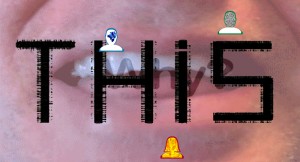
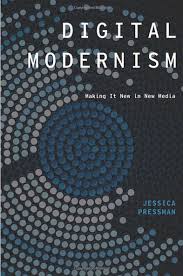
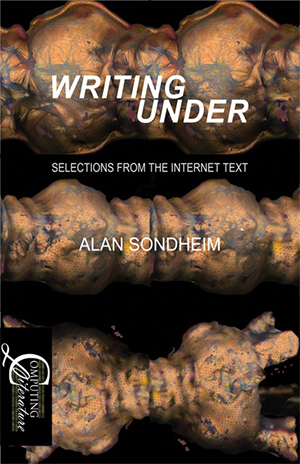
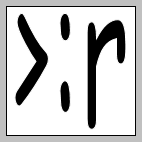
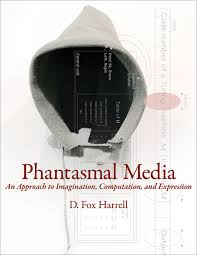
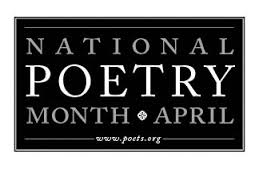 In tandem with National Poetry Month this April, ELO is promoting a month-long celebration of electronic poetry.
In tandem with National Poetry Month this April, ELO is promoting a month-long celebration of electronic poetry.